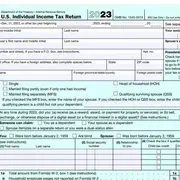The Unintended Consequence

How a Texas THC Ban Could Support Terrorist Cartels
The Texas legislature is currently engaged in a significant debate regarding the future of tetrahydrocannabinol (THC) products within the state. Senate Bill 3, spearheaded by key Republican leaders, proposes a comprehensive ban on all consumable forms of THC, a move largely motivated by concerns over the proliferation of unregulated hemp-derived THC products that entered the market following the 2019 legalization of industrial hemp 1. Proponents of the ban argue that it is necessary to prevent the sale of potentially unsafe products and to ensure the safety of Texans 2. However, this report posits that such a ban, despite its well-intentioned objectives, could inadvertently provide substantial support to terrorist cartels by creating a large and unregulated black market for THC products. By examining historical precedents, the established links between drug trafficking and terrorism, and the operational capabilities of Mexican cartels, this analysis will demonstrate the potential for a Texas THC ban to undermine national security.
Currently, the legal landscape of cannabis in Texas is multifaceted. Recreational use of marijuana, defined as cannabis with a THC concentration exceeding 0.3%, remains illegal under both state and federal law 8. Texas statutes explicitly criminalize the delivery and possession of marijuana, with penalties escalating based on the quantity involved. For instance, possession of up to two ounces is classified as a Class B misdemeanor, carrying a potential jail sentence of up to 180 days and a fine of $2,000 10. THC concentrates are treated even more severely, classified as Penalty Group 2 Drugs, which invariably results in felony charges regardless of the amount possessed, with punishments ranging from two years in jail to life imprisonment and hefty fines 10. Despite these stringent state laws, some cities and municipalities in Texas have adopted local reforms to either apply lesser penalties or limit the enforcement of marijuana possession, indicating a degree of local divergence from the state's strict stance 9.
In contrast to the prohibition of recreational marijuana, Texas does have a limited medical cannabis program, the Compassionate Use Program (CUP) 2. This program allows qualified physicians to prescribe low-THC cannabis oil (containing less than 1% THC by weight since a 2021 expansion) to patients suffering from specific medical conditions, including epilepsy, multiple sclerosis, cancer, and post-traumatic stress disorder 10. However, the program is restrictive, limiting the form of cannabis to ingestion (no smoking or vaping) and involving a limited number of registered physicians and dispensaries 16.
A significant development in the Texas cannabis landscape was the 2019 legislation that legalized the cultivation of industrial hemp, defined as cannabis containing less than 0.3% THC 1. This legislation inadvertently paved the way for a booming market in hemp-derived products containing THC, such as Delta-8 and Delta-9 THC gummies and tinctures 1. This market has experienced rapid growth, with estimates suggesting billions of dollars in annual revenue and tens of thousands of jobs created 21. However, this expansion has also raised concerns about the unregulated nature of these products, with authorities noting the lack of oversight in manufacturing, testing, and labeling, leading to potential health risks from products exceeding the legal THC limit or containing contaminants 1. The legal status of some of these hemp-derived products, particularly smokable hemp and Delta-8, has been subject to ongoing court battles, further highlighting the complexity of the current situation 9.
In response to these concerns, Lieutenant Governor Dan Patrick has championed Senate Bill 3, which seeks to ban all consumable forms of THC in Texas 1. The primary rationale behind this proposed legislation is to address the perceived public health and safety risks associated with the unregulated hemp-derived THC market 2. However, this move has faced opposition from businesses within the hemp industry, who argue that a ban would result in significant job losses and economic disruption 7. The debate over Senate Bill 3 underscores the ongoing challenge of navigating cannabis policy in Texas, particularly in the wake of unintended consequences from previous legislative actions.
History offers compelling lessons on the ramifications of substance prohibition, most notably the era of alcohol prohibition in the United States from 1920 to 1933 23. The banning of alcohol, a substance with widespread demand, did not eliminate its consumption. Instead, it drove the market underground, creating a fertile ground for organized crime to flourish. Criminal gangs, such as the infamous Chicago Outfit led by Al Capone, amassed enormous wealth and power through the illegal production, distribution, and sale of alcohol 24. This period was marked by a surge in gang violence, as rival groups fought for control of lucrative territories, and widespread corruption of law enforcement officials who were often bribed to turn a blind eye to illegal activities 24. Furthermore, the quality and safety of alcoholic beverages declined significantly in the black market, leading to public health issues 27. The government also suffered a substantial loss of potential tax revenue, which could have been generated through the legal sale of alcohol 27. Ultimately, alcohol prohibition was deemed a failure due to its inability to curb demand and the myriad negative consequences it spawned, leading to its repeal 26.
Similarly, the historical prohibition of opium and its derivatives, both in the United States and globally, offers further evidence of the tendency for prohibition to foster black markets and, in some instances, exacerbate social problems 31. The Opium Wars in China during the 19th century, fueled by the illegal trade of opium by Western powers, led to widespread addiction and devastating economic consequences 31. In the United States, early 20th-century efforts to prohibit opium, particularly targeting Chinese immigrants, contributed to social discrimination and the creation of underground opium dens 31. Even more recently, the crackdown on amphetamines in the 1960s led to the emergence of clandestine "speed labs" to meet the demand, illustrating how prohibition can simply shift production to illegal channels 35. These historical examples underscore a consistent pattern: when a substance is in demand, banning it does not eliminate that demand but rather creates an environment where criminal organizations can thrive by supplying the illicit market. This historical precedent serves as a stark warning for the potential repercussions of a THC ban in Texas.
A critical aspect of this analysis is the well-documented nexus between drug trafficking and the financing of terrorist organizations worldwide 36. Drug trafficking is an immensely profitable enterprise, generating billions of dollars in illicit funds annually, which can be readily accessed by terrorist groups to support their operations 36. These funds are crucial for a range of terrorist activities, including the recruitment and training of new members, the procurement of weapons and explosives, and the planning and execution of attacks 36. Numerous terrorist organizations across the globe have relied on drug trafficking as a primary source of funding. For example, the Revolutionary Armed Forces of Colombia (FARC) historically derived a significant portion of their revenue from the drug trade 36. Similarly, the Taliban in Afghanistan has been heavily involved in the opium trade, using the profits to finance their insurgency 36. Other groups like Al-Qaeda, Hezbollah, and Boko Haram have also been implicated in drug trafficking activities to fund their terrorist agendas 36.
The relationship between drug traffickers and terrorist organizations often extends beyond mere financial transactions. These groups frequently share similar logistical needs, such as the clandestine movement of goods, people, and money across borders, fostering collaboration and mutual benefit 37. Drug traffickers can benefit from the military skills, weapons supply, and access to clandestine networks possessed by terrorist organizations, while terrorists gain a vital source of revenue and expertise in illicit financial transfers 37. Furthermore, the very act of prohibiting drugs contributes to the profitability of the illicit drug trade. By driving the market underground, prohibition inflates the prices of drugs in the black market, creating substantial profit margins for those involved in their production and distribution, including terrorist groups 41. This dynamic suggests that a Texas THC ban, by creating a new and potentially lucrative black market, could inadvertently enhance the financial capabilities of terrorist organizations that are already involved in drug trafficking.
In the context of the United States, Mexican drug cartels play a dominant role in the illicit drug trade, including the trafficking of fentanyl, methamphetamine, cocaine, and heroin 44. These cartels, such as the Sinaloa Cartel and the Jalisco New Generation Cartel (CJNG), operate as sophisticated transnational criminal enterprises with extensive global supply chains and well-established distribution networks throughout the United States 44. They employ violence, corruption, and intimidation to maintain their control over the drug market 44. Recognizing the significant threat these organizations pose, the U.S. government has designated several Mexican cartels, including Sinaloa and CJNG, as Foreign Terrorist Organizations (FTOs) 45. This designation provides the government with enhanced counterterrorism authorities to target their financial networks and disrupt their operations 51.
These Mexican cartels have a significant presence and established infrastructure within Texas, particularly along the U.S.-Mexico border, which serves as a primary corridor for drug smuggling into the United States 52. Major cities within Texas also serve as key hubs for the transportation and distribution of illicit drugs 52. Cartels utilize sophisticated techniques, including surveillance and technology like drones, to facilitate their smuggling activities and evade law enforcement 49. Regions such as the South Texas High Intensity Drug Trafficking Area (HIDTA) and the North Texas HIDTA are known to be particularly active areas for cartel operations 52. Given their existing dominance in the illicit drug market and their established presence in Texas, Mexican cartels are exceptionally well-positioned to exploit any newly created black market for THC products within the state.
The prohibition of all consumable THC products in Texas through Senate Bill 3 would likely lead to the creation of a substantial black market for cannabis. This is due to the significant existing demand for cannabis among Texans 21. Surveys indicate that a significant percentage of Texas adults have used cannabis in the past year, and a majority support either decriminalization or outright legalization of recreational marijuana 67. Banning legal sales of THC products will not eliminate this demand; instead, it will simply force consumers to seek out these products through illegal channels 7.
Given their existing infrastructure, trafficking routes, and experience in the illicit drug trade, Mexican cartels are ideally suited to capitalize on this newly formed black market in Texas 22. Their established presence along the border and in major Texan cities provides them with the necessary networks for smuggling, transportation, and distribution of high-THC cannabis 52. Furthermore, the ban would likely lead to a less regulated and potentially more dangerous market. Legitimate businesses currently selling hemp-derived THC products, which may adhere to certain safety standards, would be forced to close, leaving the illicit market to be supplied by less scrupulous actors, including cartels, who prioritize profit over consumer safety 22.
The prohibition of THC would likely drive up its price in the black market due to the increased risk and reduced supply from legal sources 41. This price inflation would lead to increased profits for the cartels involved in trafficking and selling THC products. These additional profits could then be used to further fund their other illicit activities, such as the trafficking of more dangerous drugs like fentanyl and methamphetamine, as well as other forms of organized crime, including human trafficking, extortion, and potentially, the financing of terrorist activities beyond drug trafficking 36.
The profits generated from an expanded black market in THC would further contribute to the already substantial illicit financial flows associated with drug trafficking 74. Terrorist cartels employ sophisticated money laundering techniques to disguise the origins of their drug profits and integrate them into the legitimate financial system 48. This includes the increasing use of Chinese money laundering networks to facilitate the transfer of cartel profits across borders 48, as well as the use of cryptocurrencies and other methods to obscure financial transactions 79. These laundered funds can then be used to support the broader operations of terrorist cartels, including activities that directly threaten national security 36. The increased financial resources derived from a THC black market in Texas would only enhance the ability of these cartels to fund their dangerous and destabilizing activities.
It is important to acknowledge the arguments in favor of a THC ban, primarily centered on the desire to reduce drug use, prevent youth access, and address public health concerns related to the current unregulated market of hemp-derived THC products 1. Proponents argue that the ban would eliminate this unregulated market and protect consumers from potentially harmful products 2. However, historical evidence and the consensus among many drug policy experts suggest that prohibition often fails to achieve these goals and can, in fact, lead to unintended negative consequences 4. Many argue that regulating and taxing cannabis is a more effective approach to control the market, ensure product safety through testing and labeling, and generate tax revenue that can be used for public services, including drug education and treatment 73. Some perspectives even suggest that marijuana legalization can disrupt cartel activity by providing a legal alternative to cartel-supplied cannabis 93. While substance abuse can be a complex factor in various contexts, it is generally not considered the sole driver of terrorism 96.
In conclusion, a Texas ban on all consumable THC products, while intended to address legitimate concerns about an unregulated market, carries a significant risk of inadvertently supporting terrorist cartels. Historical precedents of prohibition demonstrate the tendency to create lucrative black markets that empower criminal organizations. Given the well-established nexus between drug trafficking and terrorism, and the dominant role of Mexican cartels in the U.S. drug market with their existing infrastructure in Texas, a THC ban would likely create a substantial black market that these cartels are well-equipped to exploit. This would provide them with increased profits, further fueling illicit financial flows and potentially bolstering their capacity to fund activities that threaten national security.
To mitigate these risks, Texas lawmakers should consider alternative policy approaches. Implementing a well-regulated system for adult-use cannabis could generate tax revenue, ensure product safety, and create legal businesses that compete directly with the black market, thereby undermining cartel profits 21. If a full adult-use market is not immediately feasible, strengthening the regulation of the existing hemp-derived THC market could address safety concerns without resorting to a complete prohibition 22. Furthermore, resources should be focused on dismantling major cartel operations that traffic all forms of illicit drugs, rather than broadly suppressing a THC market that could be better managed through regulation 48. Collaboration with other states and the federal government on cannabis policy could also lead to more effective and comprehensive solutions 100. Finally, investing in public health initiatives focused on drug education and addiction treatment can address the root causes of drug abuse and reduce overall demand 55. By considering these alternative strategies, Texas can potentially address public health concerns related to cannabis while simultaneously avoiding the unintended consequence of strengthening terrorist cartels.
Mind Detour offers humorous, educational and interesting articles and videos to detour your mind from the everyday grind.
Be sure to follow us on Twitter and like our page on Facebook.
Thank You for visiting my site, I really appreciate it! Please do me a huge favor and share my articles with your friends on social media.



